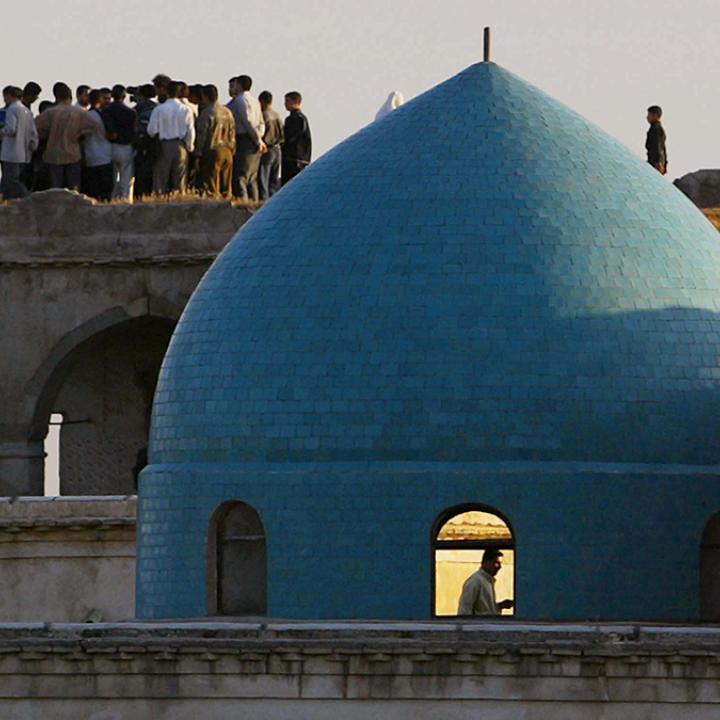

Less than a month after Iraq’s May 12 national election, which was marred by allegations of fraud, the Iraqi Parliament announced that authorities would be recounting ballots in several provinces. Among the provinces where the recount was to be held was the embattled Kirkuk, whose ownership is disputed and where sectarian tensions run high. This decision raised concerns within the ranks of the Patriotic Union of Kurdistan (PUK), a powerful Kurdish political party that has won six of the twelve parliamentary seats available in the province. Fearing that the recount would jeopardize its electoral gains and thus diminish Kurdish representation in Iraq’s Council of Representatives, the PUK has pointed an accusing finger at Kurdish opposition parties, stating that the fraud allegations made by these parties were among the reasons behind the recount.
However, such accusations are entirely unfair and resoundingly ironic.
Indeed, the PUK has been failing Kirkuk’s Kurds for years, sacrificing Kurdish interests for selfish gains. Far from betraying Kurdish interests, the opposition parties in Kirkuk ran together as one list to boost the influence of their voters and cannot be held accountable for the recount. Moreover, the PUK’s success in the election, which in fact can be partially attributed to fraud, may hold Kirkuk’s Kurds back for years to come.
From 2003 to 2017, Kirkuk was under the grip of the PUK and the Kurdistan Democratic Party (KDP), which were the only Kurdish political parties from Kirkuk to hold seats in the Iraqi parliament. During their reign, both parties placed their own interests above those of the public, profiting from oil exports while the people of Kirkuk languished. Furthermore, while in power, both parties failed to secure the implementation of Article 140 of the Constitution of Iraq, which provided a legal framework for resolving the question over the ownership of Kirkuk.
In 2014, the Islamic State (IS) attacked Kirkuk, causing Iraqi forces to flee. In the wake of the assault, the Peshmerga, the Kurdish security forces overseen by the PUK and the KDP, protected Kirkuk, eventually gained complete control Iraqi Kurdistan. In light of these circumstances, Kurdish leadership decided to hold a referendum over Kirkuk’s independence despite the fact that the stipulations of article 140 have not yet been met.
This proved to be a bad decision that escalated tensions. At the time, the PUK and the KDP did not have a strategic plan to cooperate with the Turkmen and the Arab of the province and had yet to convince them that they would be better off under the leadership of the Kurdistan Regional Government (KRG) than they were under Bagdad’s authority.
To make matters worse, a few weeks after the referendum, Iraqi forces invaded Kirkuk, reestablishing federal control and forcing the Peshmerga to withdraw. Following the invasion, the relationship between the PUK and KDP deteriorated. After PUK forces withdrew from disputed areas, thus causing thousands of Kurds to flee, the KDP openly denounced the move and chose not to participate in the Iraqi election in Kirkuk.
In the KDP’s absence, three of the four main Kurdish opposition parties in Kirkuk joined forces forming the united list “Nishtiman,” or “Homeland,” which appeared on the ballot in the disputed areas. The purpose of this maneuver was to maximize the influence of Kurdish votes, which would could have had a greater impact banded together.
After the announcement on the recount has been made, the PUK accused the parties forming Nishtiman, along with a fourth Kurdish opposition party, of propelling the parliament’s decision to recount votes. But this allegation is inaccurate as, of the 166 Members of Parliament who supported the recount, only 16 belonged to Kurdish opposition parties. Instead, it was Iraqi-Arabs, Iraqi-Turkmen and the Iraqi Government under pressure from non-Kurdish constituencies that pushed for the recount. In this context, it is also important to note that the recount took place in multiple provinces, not just Kirkuk.
For those in Kirkuk who hoped to see a significant change in the structure of the parliament following the manual recount, the results of the process may be disappointing: while the recount is still taking place, as of now, it appears that 93 percent of the votes in Kirkuk had been recorded correctly during the original count. But this does not mean that the PUK did not cheat. Indeed, during the election, the PUK obtained thousands of old election cards and used them to make fake national IDs that were handed over to PUK candidates. On election day, loyalists of the PUK candidates used the cards with the fake IDs to vote multiple times.
Such actions by the PUK and the KDP hurt Kurdish interests by intensifying ethno-sectarian tensions in Kirkuk and harshly damaging the Kurd’s reputation. Therefore, in light of the PUK and the KDP’s misjudgments and damaging practices, it is clear that as long as these parties control Kirkuk, the province will continue to be disputed.
